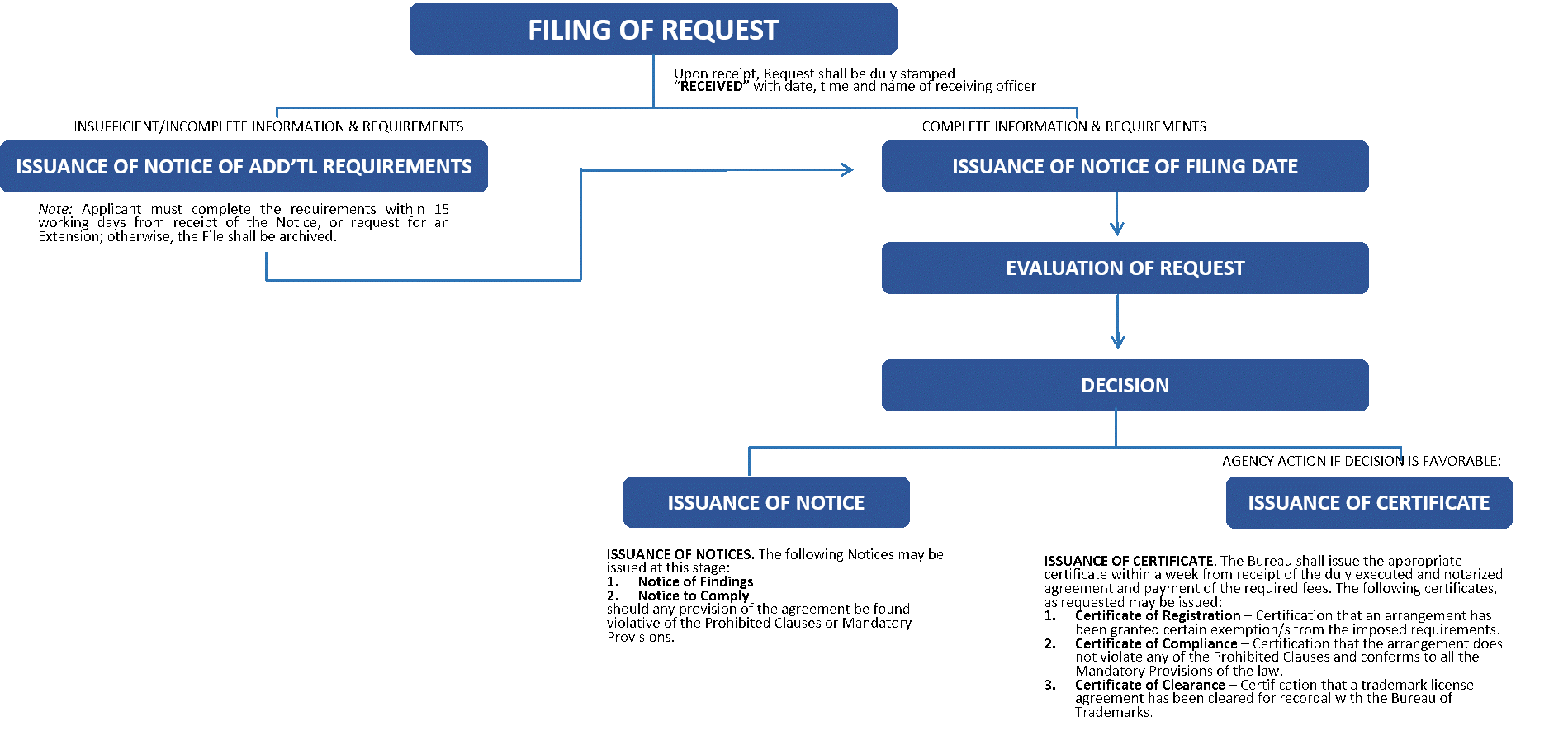11 February 2021
The Intellectual Property of the Philippines (“IPOPHL”) recently promulgated the Revised Rules and Regulations on Voluntary Licensing (“Rules”). Voluntary licensing covers all contract or agreements involving the transfer of intellectual property rights.
Implications for business in the Philippines
The Rules streamlines and makes the regulatory framework of voluntary licensing clearer with respect to the limitations imposed by the authorities in licensing arrangements. Prior to the enactment of the revised rules, while the old rules talk about the necessity of registering all voluntary licensing arrangements and technology transfer arrangements, there are no written rules which provide for the procedure and required documents for its registration. What the IPOPHL does is to determine whether the intellectual property right subject of the licensing arrangement covers a patent, trademark, copyright, et. al. and then assigns the specific Bureau handling the specific right and keep a record of these technology transfer arrangements.
Significant provisions of the Rules
New denomination for the prohibited and mandatory clauses
The Intellectual Property Code and its rules provide for the prohibited and mandatory clauses with regard to voluntary licensing arrangements. However, it is only in the new rules wherein the authorities have coined a specific denomination to each of the clauses i.e. “those which impose upon the licensee the obligation to acquire from a specific source capital goods, intermediate products, raw materials, and other technologies, or of permanently employing personnel indicated by the licensor” is now called the tie-in purchase. The other prohibited clauses are Price Fixing, Restriction on Production Volume and Structure, Prohibition on the Use of Competitive Technology in Non-exclusive Agreement, Full or Partial Purchase Option, Free Grant back, Payment for Unused Patents, Export Restriction, Restriction to Use the Technology after Term, Payment of Expired Patents, Non-contestability of Patents, R&D Restriction, Adaptation or Innovation Restriction, and Hold Harmless Clause.
Whereas, the mandatory clauses have been given the provision titles of Governing Law, Continued Access to Improvement, Arbitration and Tax Liability clauses.
Specific catch-all prohibited clause
The Rules have introduced an additional prohibited clause to encompass all provision or wordings in contracts which may be put by any of the parties to circumvent the law. The existence of any of the prohibited clauses in any kind of licensing arrangement shall be deemed prima facie to have an adverse effect on competition and trade. The new catch-all clause provides that “other anti-competitive clauses or stipulations in restraint of trade e.g. unreasonable post-termination non-compete covenants, likewise are prima facie to have an adverse effect on competition and trade. The burden of overcoming the presumption rests with the party claiming exemption.”
Effect of conformity
Under the new rules, technology transfer arrangements that conform to the provisions providing for the prohibited and mandatory clauses need not be registered with the IPOPHL. Further, non-conformance with any of the provisions shall automatically render the arrangement, unenforceable, unless an application for exemption in exceptional and meritorious cases has been filed with the IPOPHL, and is subsequently granted, and the arrangement is approved and registered with the respective Bureau.
Exemptions from the prohibited clauses and mandatory provisions
Exemption from the prohibited clauses and mandatory provisions of the Intellectual Property Code may be allowed in exceptional or meritorious cases, such as:
-
high technology content;
-
increase in foreign exchange earnings;
-
employment generation;
-
regional dispersal of industries;
-
substitution with or use of local raw materials; and/or
-
pioneer status registration with the Board of Investments.
Cases may be allowed exemption where substantial benefits will accrue to the economy.
Registration procedure
The Bureau authorised to act upon all applications for registration and exemption of technology transfer arrangements and all other voluntary licensing arrangements is the Documentation, Information, and Technology Transfer Bureau of the Intellectual Property Office. To provide for an overview of the registration process, below is a step chart.
Conclusion
The rules issued by the IPOPHL is far from perfect. As of writing, more specific agreements such as franchising agreements, are still encompassed in what is contemplated by law as voluntary licensing arrangements, and thus, the specific rules as discussed above apply. Clearly, the regulatory framework of licensing arrangements focus on and regulate the anti-competitive nature of an arrangement and aims to provide safeguards to avoid such restricted trade. The rules as enacted further clarifies the registration procedure and nature of technology transfer arrangements and the legal treatment Philippine law provides to it.
For more information, please contact:
Felix T Sy, Partner, Insights Abodago Philippines (a member of ZICO Law)
felix.sy@insights-law.com


.jpg)





